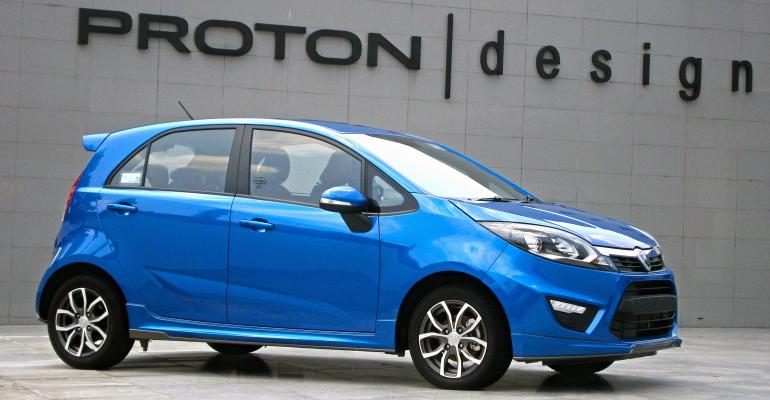DRB-Hicom, 100% owner of struggling Malaysian automaker Proton, is sticking with its investment for now, denying published reports it’s prepared to sell the company it bought from the government in 2012.
In a statement to Bursa Malaysia, the country’s stock exchange, DRB-Hicom says it remains highly committed to holding a substantial and strategic stake in Proton and is assisting the automaker in its turnaround program.
The company was reacting to a report published in Malaysia’s The Edge newspaper with the headline, “DRB-Hicom may sell up to 100% of Proton.”
The business weekly quoted an unnamed source as saying DRB-Hicom had “made it clear” it was willing to sell up to 100% of Proton to a foreign buyer.
DRB-Hicom says there has been no such decision.
“It must be highlighted that as part of the requirement of the RM1.5 billion ($40 million) loan granted by the government, Proton is undertaking a request for proposal (RFP) exercise seeking a partner to Proton who can provide a strategic, operational and cultural fit on a permanent basis with the intention to grow its automotive business,” the statement says.
This exercise is expected to be completed in first-quarter 2017 and is being overseen by the task force formed by the government to monitor the turnaround.
DRB-Hicom says it will make the appropriate announcements to Bursa Malaysia “as and when necessary.”
Earlier, China’s Geely was named one of the global automotive companies that could end up as the strategic partner for Proton.
In a report published on the Malaysian Automotive Institute’s website, Proton CEO Ahmad Fuaad Kenali says Geely is one of the few OEMs to express an interest after Proton issued a RFP to Geely and other automakers in its hunt for a long-term partner.
Proton has a year to find a strategic partner as part of the terms of the government loan it received in April.
“We have issued an RFP to Geely,” Fuaad is quoted as saying by the New Straits Times newspaper. “The company has yet to respond.”
It is the first time a potential foreign partner has been named, although the newspaper says Fuaad and other senior Proton or parent DRB-Hicom officials have said the automaker has attracted interest from several big players.
France’s PSA Group and Renault are rumored to be keen to partner with Proton, the report says.
Analysts say OEMs are drawn by Proton’s production capability, which would offer lower-cost access to ASEAN markets.
Fuaad says Proton wants a partner that, among other things, could help it lower production cost without compromising on quality.
“We don’t have the economies of scale,” he says.
Proton is looking for more than product collaboration, however. It wants a foreign partner to offer a capital injection, R&D help and technology transfer over the long term.
Fuaad tells the newspaper successful negotiations could lead to the strategic partner owning a major stake in Proton.
Earlier, International Trade and Industry Minister Mustapa Mohamed told the government’s Bernama news agency a few leading automakers from Europe, China and Japan have expressed their interest in Proton.
Mustapa says the government is leaving it to Proton to decide which partner it will choose, but “the government wants Proton to ensure its strategic partner has the capability to lift the company once again. The strategic partner must also have the technology, capital and export network.”
Proton’s recovery program is to include the closing of the Shah Alam plant and move all its production to the Tanjung Malim facility. Both plants have been operating at about one-third of their capacities, which together total 350,000 units annually.





